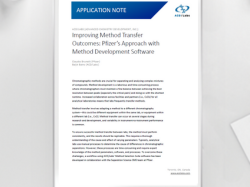Metformin helps manage weight gain side effect of SGAs
Posted: 30 October 2023 | Caroline Peachey (European Pharmaceutical Review) | No comments yet
US study shows metformin has ‘modest but significant effect’ in helping to reduce weight gain in youths taking SGA medications to treat bipolar disorder.


A large-scale study led by researchers at the University of Cincinnati and New York’s largest health care provider, Northwell Health, suggests that metformin can help prevent or reduce weight gain in youth taking second-generation antipsychotics (SGAs) to treat bipolar disorder.
SGAs used to treat bipolar disorder are often effective at helping young patients’ mental health improve but can have significant side effects including elevated blood pressure and glucose, increased appetite, as well as weight gain.
In addition to poor adherence, the weight gain side effects can lead to lifelong harmful health outcomes, according to Christina Klein, a research scientist in UC’s Department of Psychiatry and Behavioral Neuroscience in the College of Medicine.
“You’re not just looking at the mental health, but you’re looking at the physical health of the whole person,” said Klein.
Metformin is typically used for Type II diabetes treatment. It is also known to also prevent weight gain, however, almost all psychiatrists surveyed initially said they did not feel comfortable prescribing it, leading to the current study.
Studying metformin to counter the side effects of SGAs
In total 1,565 patients aged 8-19 with bipolar disorder taking SGAs were enrolled in the MOBILITY study. This was described as a “Herculean” accomplishment by Victor Fornari, MD, a child/adolescent psychiatrist at Northwell Health.
The study, which received funding from the Patient-Centered Outcomes Research Institute, had broad enrolment criteria. It was conducted at 60 sites across the US, at a wide variety of clinics, including those that had not previously participated in research studies.
Everyone enrolled in the trial received a lifestyle intervention with recommendations for healthy eating and exercise. Half of the youth were randomised to receive the healthy lifestyle intervention and were prescribed metformin.
Before beginning the interventions, researchers collected information on youth living with bipolar disorders, their quality of life and adherence to taking their SGA medication as prescribed.
While 87 percent of youth reported they took their medication regularly, most said they were unhappy with their weight and/or had been sad, mad or frustrated about their weight.
“One third of the youths enrolled in the study had metabolic syndrome at the start.”
Researchers also collected baseline metabolic data to determine if the participants had metabolic syndrome, which Northwell’s Claudine Higdon, MD, said is a common consequence of taking SGAs, placing youth at risk for diabetes and cardiovascular disease. The study found one third of the youths enrolled in the study had metabolic syndrome at the start.
“The key elements of metabolic syndrome are obesity, high blood pressure, elevated triglycerides and elevated glucose,” noted Higdon. “It is important that clinicians monitor for metabolic syndrome when treating youth with second-generation antipsychotics.”
Initial study results
In the short-term six-month follow-up data, metformin had a “modest but significant effect at preventing and in some cases reversing weight gain in the study’s patient population,” stated Jeffrey Welge, professor in UC’s Department of Psychiatry and Behavioral Neuroscience and Department of Environmental and Public Health Sciences.
The drug was also found to be safe, with some gastrointestinal distress symptoms being the only side effects reported.
Additionally, while it had an effect on weight gain, metformin was not found to have a significant effect on youth’s metabolic syndrome in the short term, Welge noted.
However, Higdon stressed that further research is needed on effective interventions for metabolic syndrome.
The findings were presented during a symposium at the American Academy of Child and Adolescent Psychiatry conference in New York City on 27 October.
Related topics
Clinical Development, Clinical Trials, Drug Development, Research & Development (R&D)
Related organisations
Northwell Health, Patient-Centered Outcomes Research Institute, University of Cincinnati









